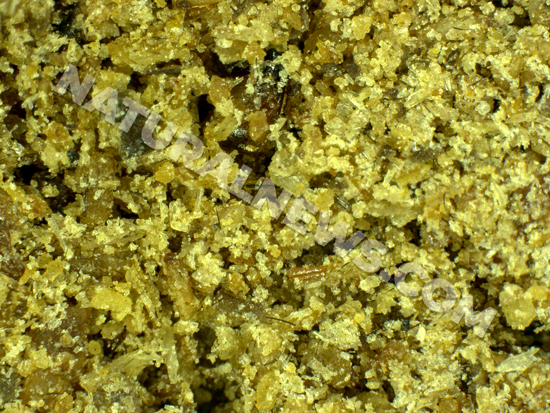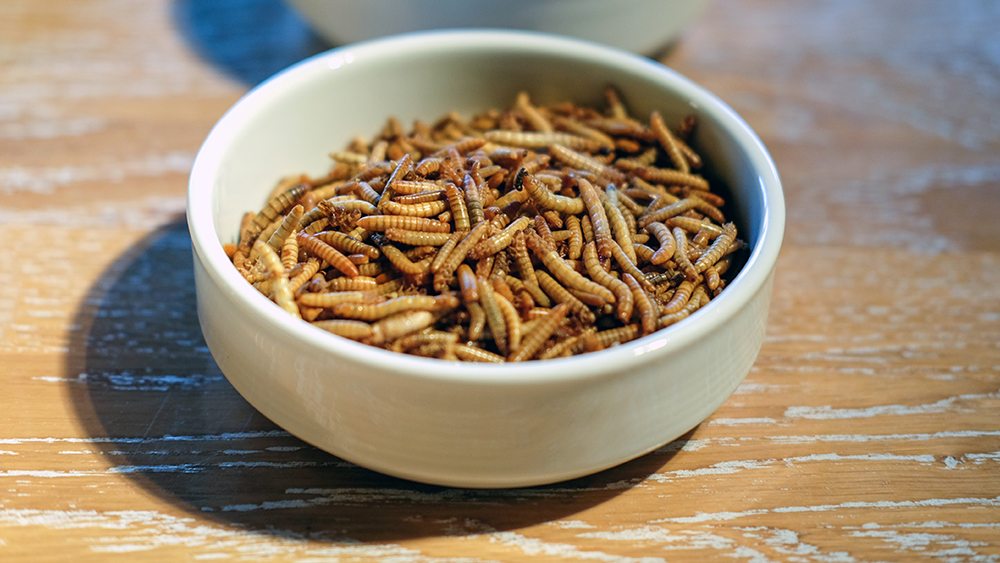
A bakery in Italy announced it will soon sell breads containing powdered house crickets (Acheta domesticus) as an ingredient.
The Tellia resturant chain in the northern Italian city of Turin made this announcement on Feb. 6. Enrico Murdocco, a chef who runs the restaurant chain, told Italian media outlets that he experimented with a mix of Sicilian grain flour and cricket powder during baking tests to "soften the flavor" of the extra ingredient.
One outlet, the daily newspaper Corriere della Sera, quoted Murdocco as saying that he was especially happy with "the crust and the range of flavors." The outlet further stated that Murdocco was reminded of hazelnut when he tasted the finished bread.
The baker expects regulators in the European Union (EU) to allow a local farm to make A. domesticus powder tailored for human consumption. The said farm imports cricket powder from Vietnam, but sells it as animal food.
"I want to put my bread in production in the beginning of March," explained Murdocco. He said his artisanal bread with cricket powder would range between €18 ($19.30) to €20 ($12.45) per kilo given the higher production costs.
Murdocco is not the only baker to utilize powdered crickets as food ingredients. Falco Foods, a company based in Alife in southern Italy, has begun producing and selling crackers made with cricket powder called Crick Crack.
"You may be creeped out by the thought of eating insects, but cricket [flour] is actually the new health food that can be conveniently hidden in delicious products," a web page for the product stated. "Cricket is quickly gaining popularity as a healthy protein source without the environmental, economic and health concerns that come with meats."
"Crickets are already eaten all around the world such as Asia, Africa and the Middle East," it added, reiterating that "animal- and insect-based proteins are of the same quality."

Insects soon to become ubiquitous in the food supply
The news of Tellia selling breads with cricket powder followed the European Commission approving the use of partially defatted and powdered A. domesticus as food ingredients in the EU bloc. Cricket powder is sometimes used as an additive to enrich certain food items with protein. (Related: EU green-lights two new insect species for use as FOOD.)
A similar attempt to create bread mixed with cricket powder had been done in 2017 – with the Guardian publishing an article in November of that year elaborating on the endeavor.
According to the piece, Finnish baker Fazer launched the first insect-based bread for its customers. It was made from a combination of about 70 crickets ground into powder, wheat flour and seeds. Fazer boasted that the cricket loaf, which sold for €3.99 ($4.28) at the time, contains more protein than a regular wheat loaf that sold between €2 ($2.15) and €3 ($3.22) at the time.

Juhani Sibakov, head of innovation at Fazer, said the company developed the bread in the summer of 2017 and waited for legislation to be passed in Finland before launching it. He added that the cricket loaf "offers consumers a good protein source and also gives them an easy way to familiarize themselves with insect-based food."
According to Fazer, the bread would initially be sold in 11 stores in hypermarkets at the Finnish capital Helsinki due to a limited supply of crickets. The bakery buys its cricket flour from the Netherlands, but has begun looking for local suppliers. Fazer would offer it in all of its 47 stores all over Finland by 2018.
"It tastes like bread," said Helsinki student Sara Koivisto after trying the product. "I don't taste the difference."
At the time of the Guardian article's publication in November 2017, Finland had joined five other European countries – the United Kingdom, the Netherlands, Belgium, Austria and Denmark – in allowing insects to be raised and marketed for food use.
Watch this video that touches on insect consumption being normalized through the use of insect powder as food additives.
This video is from the Contrarian channel on Brighteon.com.
More related stories:
Academics are trying to "normalize" eating insects by baking biscuits out of ground insect powder.
British government funding experiments that involve feeding African children INSECTS.
You WILL eat the bugs: Major brands quietly slipping insects into your food.
Sources include:
Please contact us for more information.














